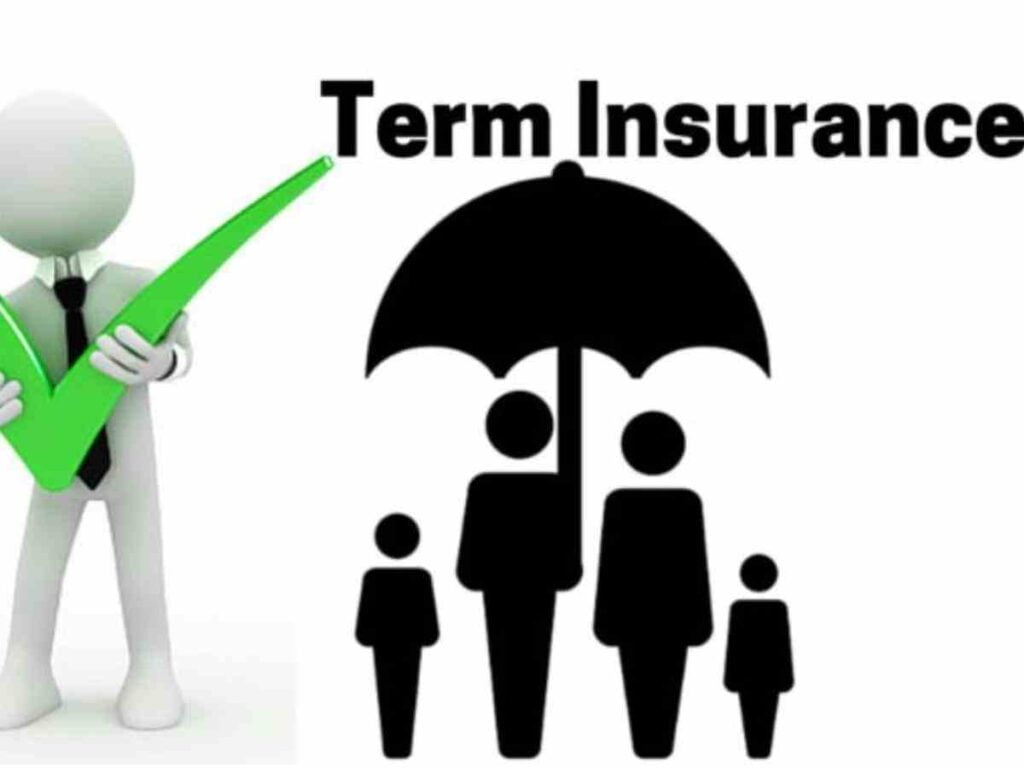Life is full of unexpected twists and turns. One such turn could be deciding to quit your job. While it’s a significant decision that can lead to new opportunities, it also comes with its own set of challenges. One such challenge that often goes unnoticed is the impact on your life insurance policy. If you’re covered under your employer’s group life insurance policy, what happens to it when you quit? Does it end? Can you keep it? If so, how? These are questions that many of us have, but few find clear answers to. In this article, we’ll explore the ins and outs of life insurance as it relates to job changes. We’ll help you understand your options, the pros and cons of each, and guide you on how to navigate this complex yet crucial aspect of personal finance.
Life Insurance through Employers

When you start a new job, one of the perks you might not think about immediately is the life insurance policy that often comes with your employment package. It’s like a quiet promise from your employer that they’ve got your back, even in the most unexpected circumstances. This kind of insurance is usually part of a group plan, which means it’s shared among all the employees and comes with some pretty sweet benefits.
For starters, the company often covers most, if not all, of the premiums. That’s less money out of your pocket each month and more peace of mind. Plus, there’s no medical exam to worry about; you’re covered just because you’re part of the team. If you feel like the basic policy isn’t enough, you can usually opt for extra coverage. It’s like ordering a side of fries with your burger – it costs a bit more, but sometimes you just need that extra bit of comfort.
Now, these policies are pretty straightforward. They’re tied to your salary, so the more you make, the more coverage you get. But remember, it’s usually just your base salary, not the extra bits like bonuses or commissions. And you’ll want to name someone specific to receive the benefits if you’re not around, otherwise, it could get tied up in legal stuff you’d rather avoid.
But here’s the thing – this insurance is like a work buddy; it’s there as long as you’re in the job. If you decide to part ways with the company, the insurance waves goodbye too. Unless, of course, you look into converting it into a personal policy before you leave. It’s a bit like keeping in touch with that work buddy on social media after you’ve moved on to a new place.
So, while employer-sponsored life insurance is a fantastic benefit, it’s worth thinking about whether it’s enough for you and your loved ones. And if you’re thinking of switching jobs, it’s a good idea to have a game plan for your life insurance, so you’re not caught off guard. After all, life’s a bit unpredictable, but your life insurance doesn’t have to be.
Options After Quitting the Job
When you decide to quit your job, one of the many aspects of your life that can be affected is your life insurance policy, especially if it’s a group policy provided by your employer. Typically, these group life insurance policies are tied to your employment status, which means the coverage may end when you leave your job. However, it’s not as straightforward as it sounds, and there are several paths you can take.
One option is policy conversion. Some group life insurance policies offer a feature that allows you to convert your group coverage into an individual policy. This means you can continue your life insurance coverage, but it’s important to note that individual policies often come with higher premiums compared to group policies.
Another option is portability. If your group life insurance policy is portable, you can take the coverage with you when you leave your job. Like conversion, this allows you to maintain your life insurance coverage. However, the premiums, which were likely subsidized by your employer, may increase.
If neither conversion nor portability is an option, or if they’re not financially feasible, you might consider purchasing a new life insurance policy. This would involve going through the application process again, which could include a medical exam. The premiums for your new policy would be based on various factors, including your age and health status.
Lastly, you could choose to go without life insurance coverage. This is a risky option, especially if you have dependents who rely on your income. However, if you’re in good health, have no dependents, and have enough savings, this might be a viable option for you.
In conclusion, leaving your job can significantly affect your life insurance coverage. It’s crucial to understand these implications and make an informed decision about how to manage your life insurance coverage in the event of a job change.
Pros and Cons of Keeping Your Policy
Here are the pros and cons of keeping your life insurance policy after leaving a job:
Advantages:
- Continuity of Coverage: If you convert or port your group life insurance policy, you can maintain uninterrupted life insurance coverage. This can be particularly beneficial if you have dependents who rely on your income.
- No Medical Exam: When you convert or port your group policy, you typically don’t need to undergo a medical exam. This can be a significant advantage if you have health issues that could make a new policy prohibitively expensive or even unattainable.
- Peace of Mind: Knowing that your loved ones are financially protected, regardless of your employment status, can provide significant peace of mind.
Disadvantages:
- Higher Premiums: Individual life insurance policies are typically more expensive than group policies. You’ll likely face higher premiums if you convert or port your policy.
- Limited Coverage: Employer-provided life insurance policies often provide less coverage than you might need. Even if you keep your policy, it may not provide sufficient financial protection for your loved ones.
- Dependence on Employment: If you don’t convert or port your policy, your coverage ends when your employment does. You’ll then need to secure a new policy, which can take time and potentially leave you without coverage in the interim.
Ultimately, the decision to keep your life insurance policy after leaving a job should be based on your specific needs, health status, and financial situation.
The Importance of Reading Policy Terms
Understanding the terms and conditions of your life insurance policy is crucial, much like reading the fine print before signing any important contract. Here’s why it’s so important:
- Know What’s Covered: Policies can vary greatly in what they cover. By reading the terms, you’ll know exactly what’s included in your coverage and what’s not.
- Understand the Costs: Life insurance policies detail your premium payments, any potential increases over time, and the circumstances under which rates could change.
- Identify Exclusions: There might be specific situations or conditions that your policy does not cover. Knowing these can help you avoid surprises later on.
- Beneficiary Details: It’s vital to understand how to designate or change a beneficiary, as this person or entity will receive the policy’s payout.
- Policy Limits: Every policy has limits, whether it’s the coverage amount or the term length. Understanding these helps you plan for additional coverage if needed.
- Riders and Add-ons: If you want to customize your policy with additional features, you need to understand the terms related to any riders or add-ons.
- Policy Conversion and Portability: If you leave your job, some policies may allow you to convert or port your coverage. Understanding these options beforehand is essential.
By thoroughly reading and understanding your life insurance policy terms, you ensure that you and your beneficiaries are not caught off guard by unknown clauses or unexpected procedures.
How to Choose a New Life Insurance Policy

Choosing a new life insurance policy is a significant decision that requires careful consideration. Here are some steps to guide you through the process:
- Determine Your Needs: Consider why you need life insurance. If you have dependents, you’ll want enough coverage to support them financially if you’re no longer around. Consider their future needs, such as education costs, and any debts you might leave behind.
- Choose the Type of Policy: There are two main types of life insurance: term and permanent. Term life insurance covers you for a specific period, while permanent life insurance provides lifelong coverage and has a cash value component. Each has its pros and cons, so research both types to determine which is best for you.
- Compare Quotes: Get quotes from multiple insurance companies to ensure you’re getting the best rate. Be sure to compare the same type of policy and coverage amount across different companies.
- Review the Policy Details: Carefully review the policy’s terms and conditions. Look for any exclusions or limitations, and understand the policy’s premium, death benefit, and cash value growth (if applicable).
- Consider the Insurer’s Reputation: Research the insurance company’s reputation and financial stability. You can check ratings from independent agencies like A.M. Best or Moody’s.
- Consult a Professional: Consider consulting with a financial advisor or insurance professional. They can provide personalized advice based on your financial situation and needs.
Can Life Insurance Drop You If You Get Sick?
Remember, the goal of life insurance is to provide financial protection for your loved ones in the event of your death.
Comparing Employer-Sponsored and Private Life Insurance
When you’re weighing the options between employer-sponsored and private life insurance, it’s like comparing two different investment opportunities. Each has its own set of features, benefits, and considerations. Let’s break down the key differences:
Employer-Sponsored Life Insurance:
- Cost: Typically, this is more cost-effective since employers may pay a portion or all of the premiums.
- Convenience: Enrollment is usually straightforward, often integrated into the hiring process.
- Guaranteed Issue: Most group policies don’t require a medical exam, making it easier to get coverage.
- Coverage Amount: The coverage is often a multiple of your salary, but it may be capped at a lower amount than you could get with a private policy.
- Portability: Generally, this coverage is not portable; it ends when your employment does, although some policies offer conversion options.
Private Life Insurance:
- Customization: You have more flexibility to tailor a policy to your specific needs.
- Stability: Your coverage isn’t dependent on your job, so it stays with you even if you change careers.
- Coverage Options: You can typically choose from a wider range of coverage amounts and policy types.
- Medical Underwriting: Private policies usually require a health assessment, which can affect your rates and eligibility.
In essence, employer-sponsored life insurance is a convenient and cost-effective way to get basic coverage, but it may not be sufficient for everyone’s needs. Private life insurance offers more control and stability, but it comes at a higher cost and requires a health evaluation.
FAQs
Q 1. Can I have more than one life insurance policy at a time?
Ans. Yes, a person can have more than one life insurance policy. This is known as “layering” and can be a strategic way to customize your coverage to your changing life needs.
Q 2. What factors should I consider when deciding between keeping my existing policy or getting a new one after leaving a job?
Ans. Factors to consider include the cost of keeping your existing policy, the coverage it provides, your health status, your age, your financial situation, and your family’s needs.
Q 3. How does the life insurance payout work?
Ans. A life insurance payout, also known as a death benefit, is the money paid to the policy’s beneficiaries when the insured person passes away. The payout amount is determined by the policy terms and is usually tax-free.
Q 4. What happens to my life insurance if I retire, not just quit?
Ans. If you retire, your employer-provided life insurance may end, depending on the terms of your policy. Some employers may allow you to keep your coverage, but you may have to pay the full premium.
Q 5. Can my employer cancel my life insurance policy without informing me?
Ans. Generally, employers are required to inform employees of any changes to their benefits, including life insurance. However, the specifics can depend on employment contracts and local laws.
Q 6. What is the process of converting a group policy to an individual policy?
Ans. The process can vary by insurance company, but generally, you would need to apply for conversion within a certain period after leaving your job. You may need to provide proof of employment termination.
Q 7. What should I do if my application for policy conversion is denied?
Ans. If your conversion application is denied, you may have the right to an administrative appeal. It’s important to handle the appeal carefully and consider seeking legal advice if necessary.
Q 8. Can I negotiate life insurance coverage as part of my severance package?
Ans. Yes, you can negotiate for life insurance coverage as part of your severance package, but it’s not guaranteed. It depends on your employer’s policies and the terms of your departure.
Conclusion
Wrapping up, life insurance is a safety net that protects our loved ones, and understanding how it works in relation to our employment is crucial. Leaving a job can be a turning point in our lives, and it’s essential to know that it can also turn the page on our life insurance coverage.
Whether it’s converting your group policy, porting it, or stepping into a new policy altogether, each path comes with its own set of considerations. Employer-provided life insurance can be a valuable part of your benefits package, but it might not be enough, and it certainly isn’t permanent. That’s why having an individual life insurance policy can be a smart move.

Join Shubham, a finance enthusiast with a mission to empower readers with the knowledge and tools to achieve financial freedom. Discover smart financial advice and unlock your financial potential.


